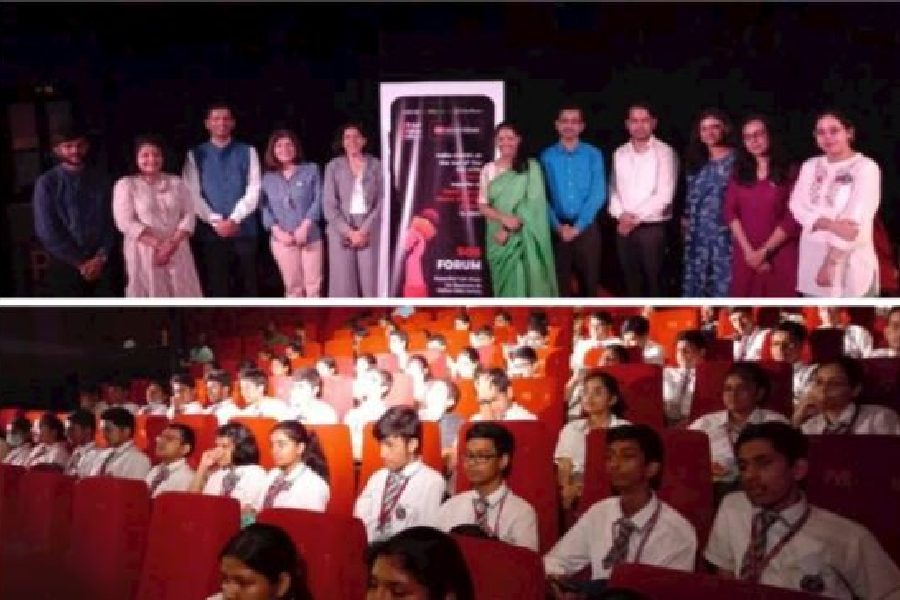A two-minute clip being screened across multiplexes in the country, including those in Kolkata, shows seemingly harmless online chats leading a girl and a boy to the trap of online abusers.
“Are you talking to strangers online? Predators lure their victims by studying their online activities,” the clip says towards the end, displaying a number, 6003060040. It
is a chatbot that provides information and assistance, round-the-clock, to parents and children grappling with this issue.
At PVR INOX in Mani Square, around 70 students and teachers of Indus Valley World School saw the short film on Wednesday and listened to a panel that discussed the growing threat of online abuse of children.
Leena Kejriwal, founder of the Missing Link Trust, which spearheads a public art campaign to sensitise people to the plight of girls trafficked for sexual exploitation, explained how an apparently innocuous interaction can lead to trouble in the virtual world.
“When you have made a comment like ‘I am feeling low’, they will come in. They will probably send a ‘hi’ or a ‘hello’. They will comment on your comment, very slow and steady....
“Suppose you see somebody has been following you or making comments on your comments, six months down the line you might say ‘he is a friend, I know him, he has been around’. Before you know it, you would be liking his comment. Or his comments start popping up on your social media and you start interacting,” she said.
Major Vineet Kumar, founder-president of CyberPeace Foundation, said there was not much difference in being a good citizen and a good netizen.
“There are people who are watching you.... Virtual world is just a space. Just like you would not do something in the real world, don’t do what you think is wrong in the digital world,” he said.
Kumar advised the students to report immediately in case of online harassment.
The Missing Link Trust and CyberPeace Foundation have joined hands with the CSR arm of PVR INOX to launch a nationwide campaign, #SOS “Stop Online Stalkers”.
Siddiqua Parveen, legal consultant for the West Bengal Commission for Protection of Child Rights; Sujata Sen, CEO, Future Hope NGO; and Kausik Halder from Webel, were among the other panellists.
“AI knows how you think, what you do.... The only way you can resist it is by being aware of the risks of AI and smartphones,” said Sen.
“We all know the kind of time children spend online and with gadgets. So an awareness of the risks involved and how to be safe is important,” said Amita Prasad, director, Indus Valley World School.
